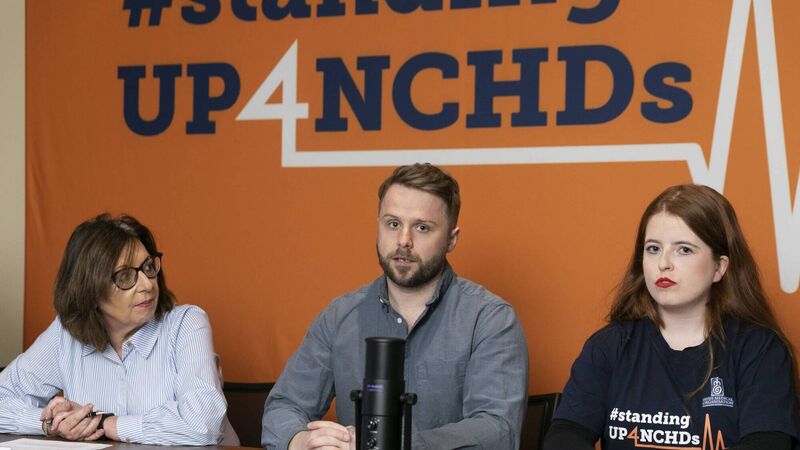Junior doctors vote 'overwhelmingly' in favour of industrial action over long hours

Susan Clyne, IMO Chief Executive; Dr John Cannon, Chair of the NCHD committee of the IMO; and Dr Rachel McNamara, IMO committee member. Picture: Fennell Photography
Junior doctors working for the HSE have voted “overwhelmingly” in favour of industrial action in relation to long working hours and unsafe conditions.
This means patients could face another round of cancelled operations and treatment within weeks, following strike action by medical scientists in recent weeks.










